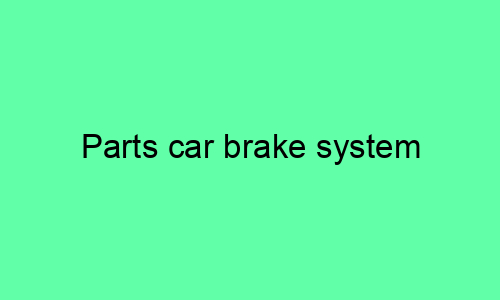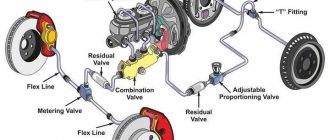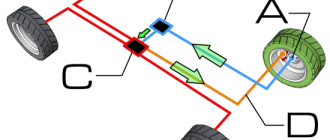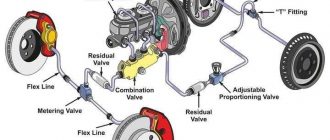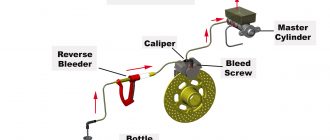Parts of a Car Brake System
Master Cylinder
The master cylinder is the heart of the brake system. It converts the force you apply to the brake pedal into hydraulic pressure. This pressure is then sent to the brake calipers and wheel cylinders, which in turn apply pressure to the brake pads and brake shoes.
Brake Lines
Brake lines are the tubes that carry the brake fluid from the master cylinder to the brake calipers and wheel cylinders. They are typically made of steel or copper.
Brake Calipers
Brake calipers are mounted on the wheels and contain the brake pads. When you step on the brake pedal, the master cylinder sends hydraulic pressure to the brake calipers, which in turn squeeze the brake pads against the brake rotors.
Brake Rotors
Brake rotors are the discs that the brake pads press against. They are typically made of cast iron.
Brake Pads
Brake pads are the friction material that contacts the brake rotors. They are typically made of a composite material that includes metal, ceramic, and organic fibers.
Wheel Cylinders
Wheel cylinders are mounted on the wheels and contain the brake shoes. When you step on the brake pedal, the master cylinder sends hydraulic pressure to the wheel cylinders, which in turn push the brake shoes against the brake drums.
Brake Drums
Brake drums are the cylindrical components that the brake shoes press against. They are typically made of cast iron.
Brake Shoes
Brake shoes are the friction material that contacts the brake drums. They are typically made of a composite material that includes metal, ceramic, and organic fibers.
